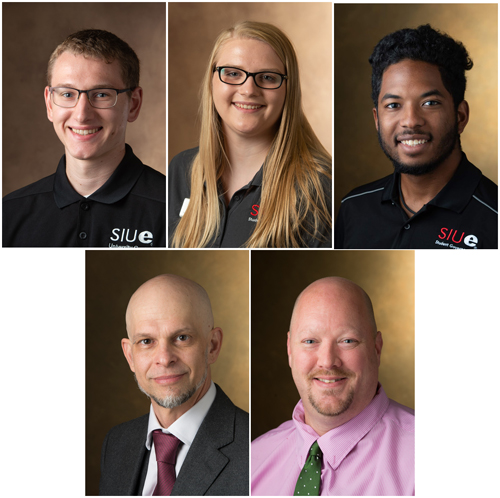 As the COVID-19 pandemic threatened college students’ first-year experience, students, faculty and staff at Southern Illinois University Edwardsville sprang into action and devised a creative plan to provide new students with a support system centered on near-peer mentoring.
As the COVID-19 pandemic threatened college students’ first-year experience, students, faculty and staff at Southern Illinois University Edwardsville sprang into action and devised a creative plan to provide new students with a support system centered on near-peer mentoring.
The Cougar Connectors program, inspired by the Honors Student Association (HSA) peer-to-peer mentoring program, quickly developed into a robust and effective offering. During the program’s launch in fall 2020, 150 upper-class students volunteered to provide help and guidance to 1,500 first-year students (FYS).
“Ultimately, our aim was to provide a substitute for the kinds of natural relationships through hallway and classroom interactions that would develop between first-year students and upper-class students,” explained Carpentersville native Colin Boysen, a senior business administration major and HSA president. “This kind of program is especially valuable and important during these trying times. Although, it has exceptional benefits even in normal times.”
University Honors Program Director Eric Ruckh, PhD, associate professor in the Department of History, challenged Boysen to lead the charge on developing such an initiative that would be student-led and student-serving. Boysen had just two months to scale the HSA peer-to-peer mentoring program from a support system impacting 100 students to one that would serve 1,500 FYS.
“I challenged Colin, because I’ve had the great privilege of working with him and other wonderful students in the HSA,” Ruckh said. “I knew that Colin and the people around him would be able to create this program. I knew they wanted to help the institution, and if given the opportunity, they would not disappoint.”
To assist in guiding the student-side delivery of the program, Boysen convened a steering committee comprising upper-class students Ronald Akpan, Jacob Beebe, Leslie Kupferle and Minerva Mixon. Committee members collaborated to develop and administer the program.
Core aspects of program development included building content for volunteers and messaging to participants, coordinating with the First Semester Transitions (FST) program to build on its successful foundation, and recruiting 150 upper-class volunteer mentors.
Speaking to the grand challenge of producing a successful large-scale program on a short timeline, Boysen said, “This wasn’t just a charge from Eric. It was the Manhattan Project of mentorship. We had to remain constantly flexible with this program. Cougar Connectors demonstrated that SIUE has a dedicated student population that wants to help.”
Ruckh, Boysen, Honors Program Assistant Director Ian Toberman, and two volunteer mentors presented the Cougar Connectors program to the SIU System Board of Trustees (BOT) at its Feb. 11 meeting.
Sophomore nursing major Alexia Burnett, of Shelbyville, served as a mentor and was paired with 10 students. She primarily used GroupMe to stay in constant contact with her mentees.
“It was rewarding to share my personal experiences and provide students with helpful information,” she said. “I loved getting to know these freshmen and helping them succeed. I answered questions about how to study for the nursing entry exam, how to use Blackboard, how to email a professor professionally and how to get involved on campus.”
Fellow mentor and nursing major Marcus Kwasa, of Edwardsville, found email was the most effective form of communication for his group. In spring 2021, he is again participating in Cougar Connectors, this time as an “on call connector” who faculty teaching FST courses can contact if they feel a student would benefit from added guidance and help.
At the BOT meeting, the program received high praise from trustee Dr. Ed Hightower and system leaders.
“It’s exciting to use this type of program for supporting, energizing and providing freshman students the confidence they need during their difficult first year,” Hightower noted. “I’m always concerned about freshmen, as are other trustees. How are we not only recruiting, but more importantly, supporting and building their confidence?”
“This program is an amazing personification of empathy and altruism,” added SIU System Vice President for Academic Innovation, Planning and Partnerships Gireesh Gupchup, PhD. “Programs like this build culture.”
In spring 2021, Kwasa is leading a group with goals to re-evaluate and develop the curriculum of the Cougar Connectors program. The group will use participant feedback and mentor experiences to lead improvements. The program’s new curriculum will avoid duplication and complement FST content.
Toberman underscored that it was students who gave Cougar Connectors life and made it soar.
“We had 1,500 first-year students who refused to let COVID change their college plans,” Toberman explained. “But, we knew that part of the campus experience that makes SIUE feel special was threatened by the pandemic. We are proud to have presented Cougar Connectors as our response. Colin, Lexi and Marcus are just three of the 150 student volunteers who signed up for an idea, and made it into a program. Students yearning for a chance to lead came together with a shared identity and purpose.”
Cougar Connectors is a valuable contribution to SIUE that will go beyond the pandemic and help improve the first-year experience. And, students led the way.
“University professors and teachers always have an opportunity to learn from students,” Ruckh concluded. “It is deeply embedded in my experience as a professor and as an academic. They’re the ones who will renew the future of the world. They’re the ones who will renew the future of institutions like SIUE and the SIU System.”
Ruckh has plans to make the innovate program visible by promoting its success and sustainability at national conferences.
To view the Cougar Connectors presentation to the SIU System BOT, visit siusystem.edu/board-of-trustees/meetings/meetings2021. Click on the YouTube link and scroll to the 1:45 mark in the recording.
Photo: (Top L-R) SIUE Cougar Connectors’ Colin Boysen, Alexia Burnett, Marcus Kwasa (bottom L-R) and Honors Program Director Eric Ruckh, PhD, and Assistant Director Ian Toberman.
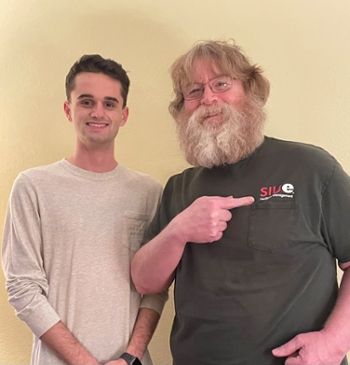 The Southern Illinois University Edwardsville Staff Senate awarded spring 2021 Faculty for Collective Bargaining scholarships to freshman Noah Tungett and sophomore Courtney Vollmer.
The Southern Illinois University Edwardsville Staff Senate awarded spring 2021 Faculty for Collective Bargaining scholarships to freshman Noah Tungett and sophomore Courtney Vollmer. 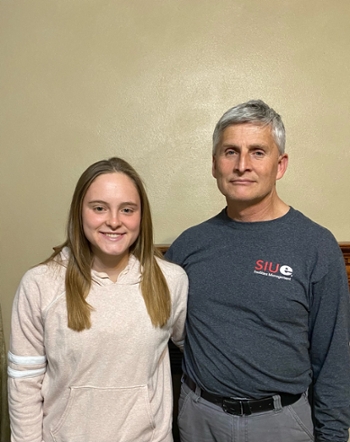 Applicants with fewer than 12 earned college semester hours must have an ACT composite of 19 or above (unless exempt because of SIUE’s admission standards) and at least a grade point average (GPA) of 2.5 on a scale of 4.0.
Applicants with fewer than 12 earned college semester hours must have an ACT composite of 19 or above (unless exempt because of SIUE’s admission standards) and at least a grade point average (GPA) of 2.5 on a scale of 4.0. The District 7 Board of Education named SIUE alumnus Patrick Shelton, PhD, as the newest superintendent of schools on Monday, March 8, according to the
The District 7 Board of Education named SIUE alumnus Patrick Shelton, PhD, as the newest superintendent of schools on Monday, March 8, according to the  Caterers and restaurant entrepreneurs are invited to showcase their talents in the 2021 East St. Louis Café of Champions Challenge,
Caterers and restaurant entrepreneurs are invited to showcase their talents in the 2021 East St. Louis Café of Champions Challenge, Southern Illinois University Edwardsville’s Sally Boutelle will be a featured panelist at Starfish by Hobson’s COVID Pandemic virtual conference on Thursday, March 11.
Southern Illinois University Edwardsville’s Sally Boutelle will be a featured panelist at Starfish by Hobson’s COVID Pandemic virtual conference on Thursday, March 11.  SIUE’s Library and Information Services continues to expand its creative offerings to promote wellness, enhance learning and serve as a “third place” for students. Newly installed Nap Pods on the third floor of Lovejoy Library provide a quiet place for individuals to rest and recharge.
SIUE’s Library and Information Services continues to expand its creative offerings to promote wellness, enhance learning and serve as a “third place” for students. Newly installed Nap Pods on the third floor of Lovejoy Library provide a quiet place for individuals to rest and recharge. By highlighting the stories of those once enslaved in Southern Illinois, an upcoming Southern Illinois University Edwardsville’s Sankofa Lecture and Dialogue Series presentation will examine the history and long-lasting effects of slavery in the state.
By highlighting the stories of those once enslaved in Southern Illinois, an upcoming Southern Illinois University Edwardsville’s Sankofa Lecture and Dialogue Series presentation will examine the history and long-lasting effects of slavery in the state.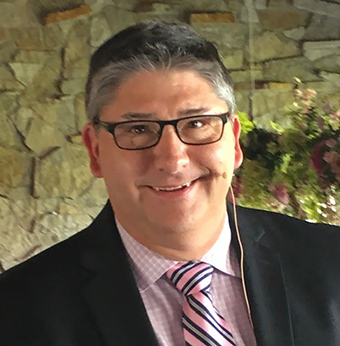 Small businesses in southern Illinois are invited to take a strategic look at the world and create a plan to expand their business internationally with guidance from industry leaders during the new, virtual, action-oriented series EXPORT NOW.
Small businesses in southern Illinois are invited to take a strategic look at the world and create a plan to expand their business internationally with guidance from industry leaders during the new, virtual, action-oriented series EXPORT NOW.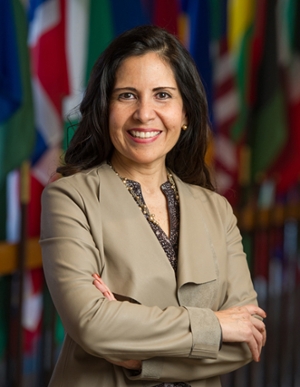 Group and customized personal coaching will be available between sessions. Participants will learn the key phases of smart exporting, find the benefits to exporting, develop a global mindset, absorb how trade has changed due to technology and the pandemic, discover the most critical component in exporting, and be positioned to propel their company toward international success.
Group and customized personal coaching will be available between sessions. Participants will learn the key phases of smart exporting, find the benefits to exporting, develop a global mindset, absorb how trade has changed due to technology and the pandemic, discover the most critical component in exporting, and be positioned to propel their company toward international success. Southern Illinois University Edwardsville School of Pharmacy (SOP) Class of 2021 students are #1 nationally as scores for the 2020 Pharmacy Curriculum Outcomes Assessment (PCOA) have been released.
Southern Illinois University Edwardsville School of Pharmacy (SOP) Class of 2021 students are #1 nationally as scores for the 2020 Pharmacy Curriculum Outcomes Assessment (PCOA) have been released. The Illinois Small Business Development Center (SBDC) for the Metro East at Southern Illinois University Edwardsville and Director Jo Ann DiMaggio May have worked with client Kimberly St. Clair to grow OTEKA SOLUTIONS, a launching pad for innovative solutions that solve global problems.
The Illinois Small Business Development Center (SBDC) for the Metro East at Southern Illinois University Edwardsville and Director Jo Ann DiMaggio May have worked with client Kimberly St. Clair to grow OTEKA SOLUTIONS, a launching pad for innovative solutions that solve global problems. Southern Illinois University Edwardsville Director of Athletics Tim Hall has announced the addition of Venessa A. Brown, PhD, to the Intercollegiate Athletics staff.
Southern Illinois University Edwardsville Director of Athletics Tim Hall has announced the addition of Venessa A. Brown, PhD, to the Intercollegiate Athletics staff.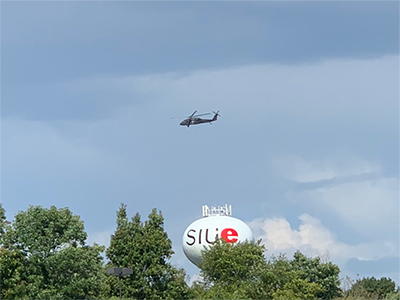 Every year, ROTC Cadets nationwide are considered for a spot in the U.S. Army’s 17 branches based on evaluations of academic, leadership and physical performances. Three Southern Illinois University Edwardsville Army ROTC Cadets have been named Army Aviation Officers after participating in the competitive 2020 assessment process.
Every year, ROTC Cadets nationwide are considered for a spot in the U.S. Army’s 17 branches based on evaluations of academic, leadership and physical performances. Three Southern Illinois University Edwardsville Army ROTC Cadets have been named Army Aviation Officers after participating in the competitive 2020 assessment process.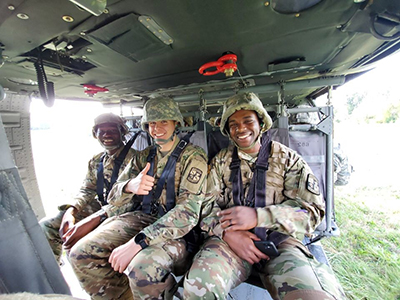 Blecha, a geography major from Shiloh, is excited to fulfill his dream of flying while continuing to pursue a leadership role.
Blecha, a geography major from Shiloh, is excited to fulfill his dream of flying while continuing to pursue a leadership role. For the purposes of keeping preschoolers on track, the Southern Illinois University Edwardsville Head Start/Early Head Start program opened in-person services on Wednesday, March 10. Six of the seven managed SIUE Head Start Centers have at least one classroom open for in-person services, according to Carolyn Jason, interim program director.
For the purposes of keeping preschoolers on track, the Southern Illinois University Edwardsville Head Start/Early Head Start program opened in-person services on Wednesday, March 10. Six of the seven managed SIUE Head Start Centers have at least one classroom open for in-person services, according to Carolyn Jason, interim program director.  SIUE Head Start/Early Head Start managed centers conducting in-person services include:
SIUE Head Start/Early Head Start managed centers conducting in-person services include: Jie Ying, PhD, assistant professor of finance in the SIUE School of Business is the featured expert in recent online articles focusing on insurance. He shared his insight on recommended coverage amounts, liability-only car insurance and how the auto insurance business model works.
Jie Ying, PhD, assistant professor of finance in the SIUE School of Business is the featured expert in recent online articles focusing on insurance. He shared his insight on recommended coverage amounts, liability-only car insurance and how the auto insurance business model works.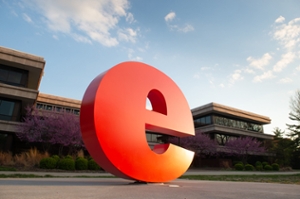 Southern Illinois University Edwardsville is adopting the Common Application, joining all 12 of Illinois’ public universities in utilizing the application to attract students to the array of academic opportunities available on their respective campuses.
Southern Illinois University Edwardsville is adopting the Common Application, joining all 12 of Illinois’ public universities in utilizing the application to attract students to the array of academic opportunities available on their respective campuses. As the COVID-19 vaccine rollout continues nationwide, misinformation is swirling, leaving individuals confused and concerned about its administration. Now, Southern Illinois University Edwardsville School of Pharmacy (SOP) experts are dispelling common myths and easing concerns.
As the COVID-19 vaccine rollout continues nationwide, misinformation is swirling, leaving individuals confused and concerned about its administration. Now, Southern Illinois University Edwardsville School of Pharmacy (SOP) experts are dispelling common myths and easing concerns. Myth: The vaccine can give me COVID-19.
Myth: The vaccine can give me COVID-19.
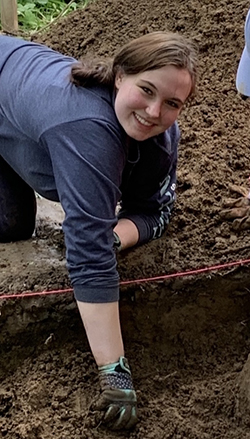 The Edwardsville Rotary Club named Southern Illinois University Edwardsville College of Arts and Sciences senior Megan Walsh, of Toledo, Ill., the February SIUE Rotary Student Leader of the Month.
The Edwardsville Rotary Club named Southern Illinois University Edwardsville College of Arts and Sciences senior Megan Walsh, of Toledo, Ill., the February SIUE Rotary Student Leader of the Month.